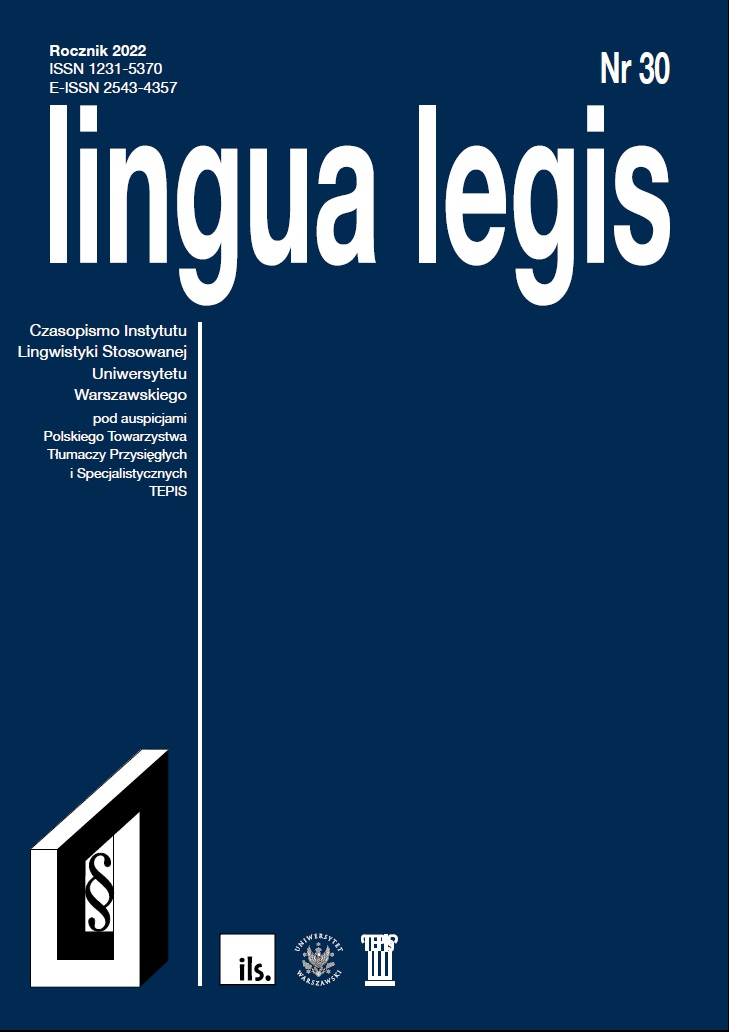Why can plain English in contracts cause diffi culties in translation into Polish?
Słowa kluczowe:
plain language, contracts, legal language, paraphrasing, readability measuresAbstrakt
Plain English has had a long history and considerable success, including in legal texts. In contrast, plain Polish is a relatively new phenomenon. Even though in Poland discussions about text readability started the 1960s, it was not until the 2010s that plain language started to appear in communication of governmental agencies, local authorities, banks, etc. A corresponding plain language of contracts has only startedto emerge. Thus, translating contracts from plain English into Polish can prove no less
diffi cult than translating from legalese, as confi rmed by the author’s didactic work with translation trainees. Diffi culties are caused by the use pronouns to refer to parties to the contract, fi nite verbs forms in contract headings, simple syntax (short sentences), and by legal terminology being replaced by or mixed with more colloquial expressions. Th ese features are rare in Polish contracts and the few available plain Polish contracts do not provide much reference material. Examples of diffi culties from a standard contract of supply used in training are provided and temporary strategies of dealing with them suggested. Until plain Polish contracts become more widespread, possible strategies include using names of parties as defi ned by the Polish Civil Code for particular contract types, avoiding very complex syntax, especially by replacing the abundance of nominal-
izations with verb phrases (with the exception of headings), and cautiously paraphrasing terminology. Translators should also follow the developments in plain Polish, while paraphrasing exercises are necessary in translator training.





